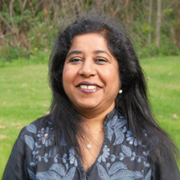IHF Oslo 2013: the 38th World Hospital Congress
The World Hospital Congress is an initiative of the International Hospital Federation (IHF), re-established in 1947 and based in Geneva. IHF is an international non-governmental organization supported by members from over 100 countries. Last June, the 38th edition was held in Oslo, Norway and the Norwegian Hospital and Health Services Association (NSH), a member of IHF, was involved in the organization of the 3-day event.
International Hospital talked to Dr Bernadette Kumar, NSH board member and president of the International Scientific Committee piloting the conference programme, about the scope of this important meeting for hospitals around the world.
Q. The 38th World Hospital Congress was successful in attracting a large number of delegates as well as high level speakers such as Dr Margaret Chan, WHO Director. As member of the Norwegian Organizing Committee and President of the Scientific Committee, can you tell us about the main challenges of putting together an event of such scope? Are there any pitfalls to be avoided?
The first key lesson is that there are never any shortcuts to success; it takes a lot of hard work, time and effort not only of an individual or key persons but a good team in putting together a good programme. Norway as a country has been known to box in a class higher than its own and it is this spirit of aiming high and for the best that secured high level speakers such as Dr. Chan. To quote one of the participants based on the evaluation, the Plenary sessions were outstanding!
Oslo 2013 clearly reflects the handiwork of a highly competent and dedicated team. Teamwork required both resilience and persistence; never giving up despite disappointments, shortcomings and even though the process could be both time consuming and tedious.
It is an extremely daunting task to satisfy and meet the needs of such a multidisciplinary global audience. Thus the main challenge of putting together such an event is striking the balance, the programme has to be relevant and interesting for a board range of subjects and a multidisciplinary audience. The programme has to cater for wide participation and in meeting the needs of all there is a danger of spreading the programme too thin. There has to be something for everybody but not everything on the programme will appeal to all participants. So the pitfall to be avoided is a highly specialized programme, but at the same time if it is too general it will not generate sufficient interest or satisfy the needs.
Q. One of the important themes discussed was the role of technology and innovation in improving the delivery and effectiveness of healthcare. There seems to have been varied and sometimes contrasting views on this key issue, could you briefly touch upon the most important points that were made? Is there a take home message on this essential question?
We live in the age of technology and healthcare is no island. Technology and innovation have serious implications for future healthcare. Technology has consequences for healthcare and despite the difference in viewpoints one thing is certain; that it cannot be ignored. Oslo 2013 provided a platform that shed light on the consequences of technology for healthcare, the challenges and ethical dilemmas technology poses. Furthermore, the positive results were shared and discussed and last but not the least the sharing of experiences from around the around the globe and learning from one another enhanced the air of optimism. The participants appreciated the possibility to gain insight as to the state of the art from both the North and South. The North South dichotomy is well known and notwithstanding the great variation in resources there are similarities especially with regards to the challenges. Dr. Margaret Chan said


